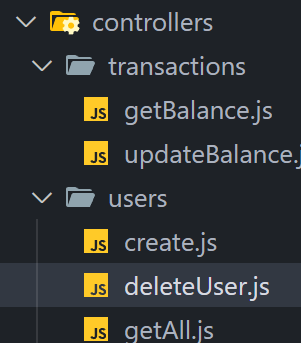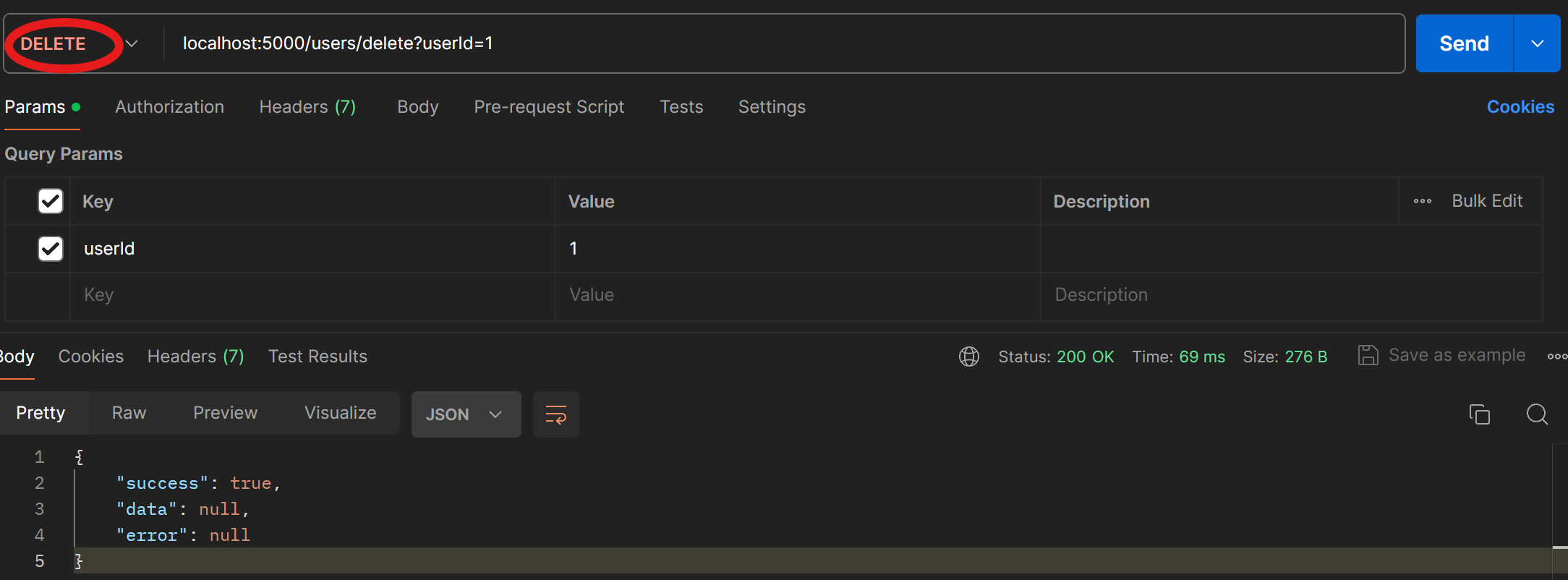Example of Delete
- Let's create an endpoint to delete user from the database, create
deleteUser.jsinto directorycontrollers->users
2. Write down using this code
const connection = require("../../services/database");
const deleteUser = async (req, res) => {
const userId = req.query.userId;
// Check if userId is number or not
const checkUserId = new RegExp(/^\d+$/).test(userId);
if (!userId || !checkUserId) {
return res.json({
success: false,
data: null,
error: "Invalid input",
});
}
try {
await connection
.promise()
.query(`DELETE FROM users WHERE id = ${userId}`);
// Return success if the data is deleted
return res.json({
success: true,
data: null,
error: null,
});
} catch (error) {
console.error("Error:", error);
return res.status(500).json({
success: false,
data: null,
error: error.message,
});
}
};
module.exports = deleteUser;3. Go to users.js in directory routers and add the line below, this time we will use delete().
const express = require("express");
const getAll = require("../controllers/users/getAll");
const create = require("../controllers/users/create");
//add this line 👇
const deleteUser = require("../controllers/users/deleteUser");
const usersRouter = express.Router();
usersRouter.get("/all", getAll);
usersRouter.post("/create", create);
//add this line 👇
usersRouter.delete("/delete", deleteUser);
module.exports = usersRouter;4. Let's run your application again, and use postman with localhost:5000/users/delete?userId=1 don't forget to change the HTTP METHOD POST,GET,PATCH to DELETE
- You will see the result like this.
-END-



No Comments